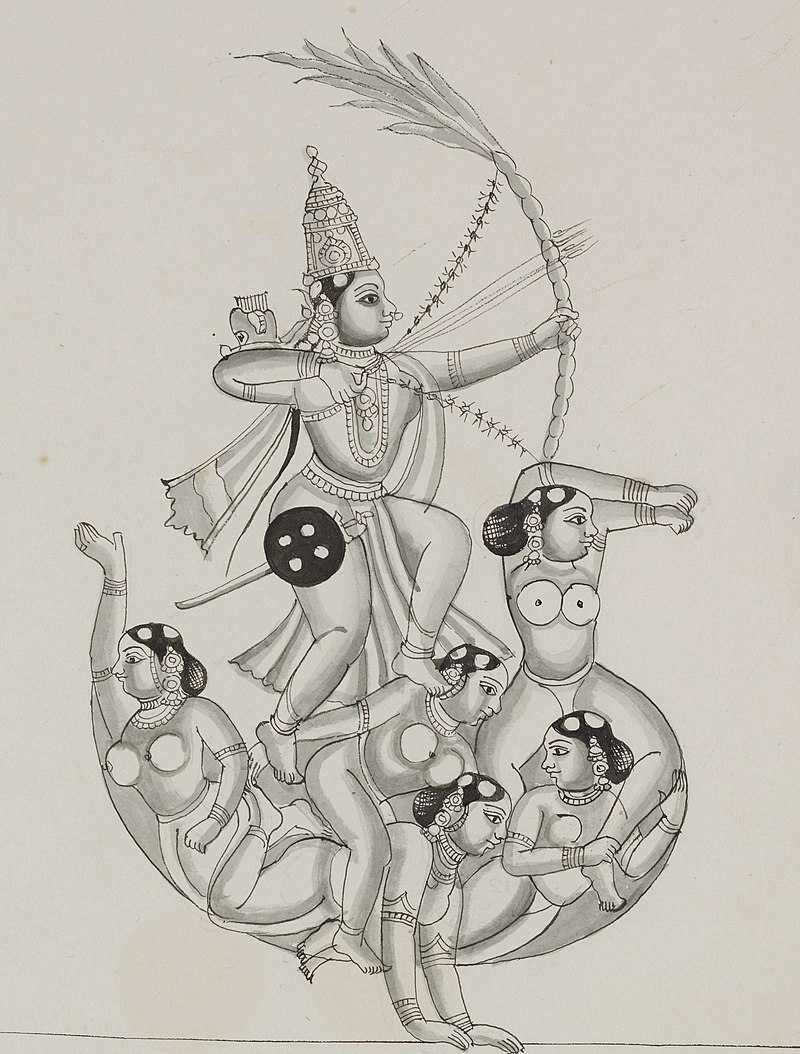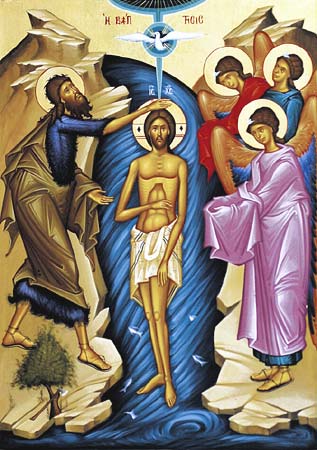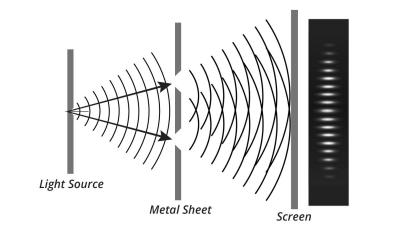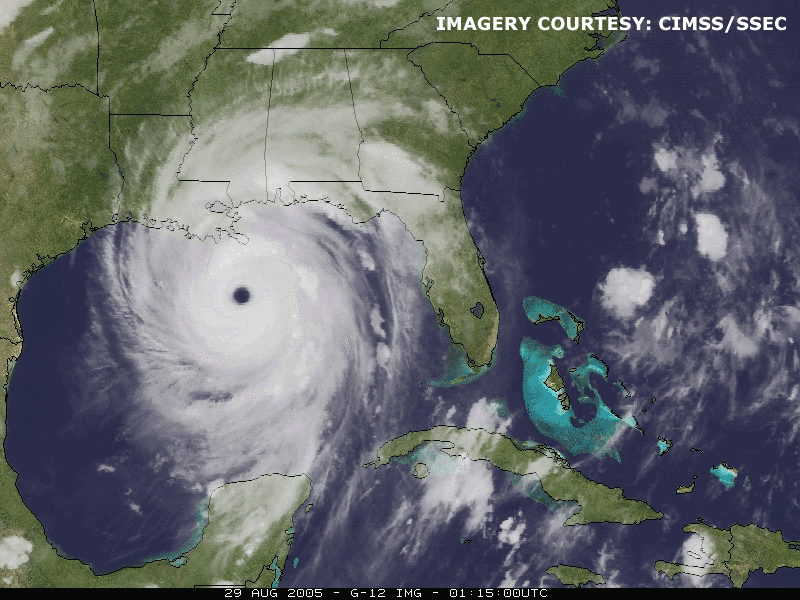You are using an out of date browser. It may not display this or other websites correctly.
You should upgrade or use an alternative browser.
You should upgrade or use an alternative browser.
We are living in a world of illusion
- Thread starter Ghost Utmost
- Start date
More options
Who Replied?Koichos
All Star
Rash"i on ʾIyyov 40:17 reads as follows:maybe its this tail
Ouroboros - Wikipedia
What's more, the term בְּהֵמָה b'hémoh (ibid. 40:15) generally means a domesticated farmyard animal (mammal), while a wild animal is normally called חַיָּה hayyoh; one does not use בְּהֵמָה b'hémoh for a fish, bird, snake, insect or arachnid.יחפוץ - כמו יחפוז = מתקשה; וכן בלשון חכמים 'דחפיזא כי אופתא' (חולין דף מ״ז ע״ב) - קשה כעץ׃יַחְפֹּץ yah'poss is like יַחְפֹּז yah'poz, that is, 'it hardens'; and similarly in Talmudhic language דַּחֲפִּיזָא כִּי אוּפְתָּא da-hapizoʾ ki ʾuf'toʾ 'as hard as wood' (Hullin, folio mem-zayyin, column béth).
פחדיו - ביציו׃פַּחֲדָו pahadhow means 'its testicles'.
ישורגו - גדילים כמו ישתרגו או ומסרגין את המיטות בלשון המשנה והוא לשון גדיל׃יְשֹׂרָגוּ y'soroghu refers to גְּדִילִים g'dhilim 'cords' that are twisted together, like יִשְׂתָּרְגוּ yistor'ghu (ʾEichoh 1:14) 'they are twisted together', or in Mishnoic language וּמְסָרְגִין אֶת הַמִּטּוֹת u-m'sorghin ʾath ha-miṭṭoth 'we may twist [supports] for beds' (Moʿedh Qoṭon, chapter ʾalaf, paragraph héth); it refers to a kind of twisted cord.
I.e., Y'rusholayim, in which there are six references in D'vorim (12:11, 14:23, 16:2, 16:6, 16:11, 26:2) as הַמָּקוֹם אֲשֶׁר יִבְחַר לְשַׁכֵּן שְׁמוֹ שָׁם hamoqom ʾashar yivhar l'shakken sh'mo shom 'the place that He chooses to make His name settle there'. The infinitive לְשַׁכֵּן l'shakken in the phrase לְשַׁכֵּן שְׁמוֹ שָׁם l'shakken sh'mo shom means 'to station' or 'to cause to dwell' and the phrase refers to הַמָּקוֹם hamoqom 'the place' (i.e., Y'rusholayim) 'where He chose to make His name dwell' (N'hamyoh 1:9); it is the root from which שְׁכִינָה sh'chinoh (meaning 'the [Divine] Presence', but literally 'that which is dwelling') is derived. While the literal word שְׁכִינָה sh'chinoh is not used in the Tanach, phrases such as לְשַׁכֵּן שְׁמוֹ שָׁם and לְשִׁכְנוֹ תִדְרְשׁוּ וּבָאתָ שָׁמָּה do occur many times in the text. As far as I am aware, the only explicit description of what the שְׁכִינָה sh'chinoh 'looked' like occurs in verse 28 of Y'hazqeʾl's first chapter, where the prophet tells us it 'looked' to him like a blaze of bright colorsExodus 20:24
:כְּמַרְאֵה הַקֶּשֶׁת אֲשֶׁר יִהְיֶה בֶעָנָן בְּיוֹם הַגֶּשֶׁם כֵּן מַרְאֵה הַנֹּגַהּ סָבִיב הוּא מַרְאֵה דְּמוּת כְּבוֹד־יְיָ וָאֶרְאֶה וָאֶפֹּל עַל־פָּנַי וָאֶשְׁמַע קוֹל מְדַבֵּר...similar to the appearance of the rainbow that is visible in the clouds on a rainy day, this is what the brightness round about [Him] looked like—that was what the appearance of Hashém's glory looked like; when I saw it I threw myself facedown on the ground, and I heard a voice speaking to me.
Rash"i on ʾIyyov 40:17 reads as follows:
What's more, the term בְּהֵמָה b'hémoh (ibid. 40:15) generally means a domesticated farmyard animal (mammal), while a wild animal is normally called חַיָּה hayyoh; one does not use בְּהֵמָה b'hémoh for a fish, bird, snake, insect or arachnid.
I.e., Y'rusholayim, in which there are six references in D'vorim (12:11, 14:23, 16:2, 16:6, 16:11, 26:2) as הַמָּקוֹם אֲשֶׁר יִבְחַר לְשַׁכֵּן שְׁמוֹ שָׁם hamoqom ʾashar yivhar l'shakken sh'mo shom 'the place that He chooses to make His name settle there'. The infinitive לְשַׁכֵּן l'shakken in the phrase לְשַׁכֵּן שְׁמוֹ שָׁם l'shakken sh'mo shom means 'to station' or 'to cause to dwell' and the phrase refers to הַמָּקוֹם hamoqom 'the place' (i.e., Y'rusholayim) 'where He chose to make His name dwell' (N'hamyoh 1:9); it is the root from which שְׁכִינָה sh'chinoh (meaning 'the [Divine] Presence', but literally 'that which is dwelling') is derived. While the literal word שְׁכִינָה sh'chinoh is not used in the Tanach, phrases such as לְשַׁכֵּן שְׁמוֹ שָׁם and לְשִׁכְנוֹ תִדְרְשׁוּ וּבָאתָ שָׁמָּה do occur many times in the text. As far as I am aware, the only explicit description of what the שְׁכִינָה sh'chinoh 'looked' like occurs in verse 28 of Y'hazqeʾl's first chapter, where the prophet tells us it 'looked' to him like a blaze of bright colors
consider that statement in light of the Greek and Hebrew versions of isopsephy
Sia (god) - Wikipedia
Hu (mythology) - Wikipedia
Shuh
We are living in a world of illusion
To each his own. It can be a useful tool for connecting different ideas in Torah, especially for children. אברהם (Avrohom) has the same value as בצלם אלהים (in the image of Hashem), for he was the first man post-Adom to fully re-establish the image of Hashem in man.

Flights of Fancy
We are living in a world of illusion
Shu (Egyptian god) - Wikipedia
Shu (Egyptian god) - Wikipedia
Rati - Wikipedia

Job 41:5

Job 41:5
5 Wilt thou play with him as with a bird? or wilt thou bind him for thy maidens?
Last edited:
Philosophy Seeks to Describe the Nature of Things
but can it describe the Nature of the Uncreated?
Epiphany of our Lord - Greek Orthodox Archdiocese of America

Biblical Story
The Biblical story of the Baptism of Christ is recorded in all four of the Gospels: Matthew 3, Mark 1:1-9, Luke 3:21-22, and John 1:31-34.
John the Baptist, the cousin of Jesus and the one chosen by God to proclaim His coming, was preaching in the wilderness and was baptizing all who would respond to his message calling for repentance. As he was doing this, John was directing the people toward the one who would baptize them with the Holy Spirit (Matthew 3:11).
The Scriptures tell us that Jesus came from Galilee to John at the Jordan to be baptized by him. Initially, John would not do this, saying that Jesus should baptize him. Jesus said to John, “Let it be so now; for it is proper for us in this way to fulfill all righteousness (3:15). John consented and baptized Jesus.
When Jesus came up from the water, the heavens opened suddenly, and the Holy Spirit descended upon Him. The Bible records that the Spirit descended like a dove and alighted on him. When this happened, a voice came from heaven and said, “This is my Son, the Beloved, with whom I am well pleased.” This was the voice of God the Father.
Christ’s baptism in the Jordan was “theophany,” a manifestation of God to the world, because it was the beginning of our Lord’s public ministry. It was also a “theophany” in that the world was granted a revelation of the Holy Trinity. All three Persons were made manifest together: the Father testified from on high to the divine Sonship of Jesus; the Son received His Father’s testimony; and the Spirit was seen in the form of a dove, descending from the Father and resting upon the Son.
The theme of “manifestation” or “revelation” is also expressed in Scripture with the symbolism of light. In the hymn of the Feast we sing, “Christ has appeared and enlightened the world.” Thus, January 6 is also known as the Feast of Lights. The Church celebrates on this day the illumination of the world by the light of Christ.
We are living in a world of illusion
Is light created or uncreated? or is it simply determined?
Tabor Light - Wikipedia

We are living in a world of illusion
Tabor Light - Wikipedia

We are living in a world of illusion
Last edited:
Slaimon Khan Shah
SLAIMON KHAN SHAH = SHAOLIN MONK/S OF ISLAAM
This life is all about the Afterlife not this life!
Take It In Blood
Banned
Koichos
All Star
Hello and حللت أهلاً ووطئت سهلاً, Slaimon (and surely that ought to be Sulaiman, the Arabic spelling of שְׁלֹמֹה?).This life is all about the Afterlife not this life!
And if not?This life is all about the Afterlife not this life!
THE God put you in this life, and made you out of nothing
regardless what you believe, God is closer to you then you are to him.
Beware of words that will send you to places that God didn’t create with Love, trust in the living God only

We are living in a world of illusion
Last edited:
all this goofy shyte is for entertainment ha*

Pump Fake Glitch
Last edited:
@Koichos
something I was reading that seems almost too ironic to me:
Azriel of Gerona - Wikipedia
What is the purpose of writing what God is or isn't?
and his predecessor is "Isaac the Blind"
something I was reading that seems almost too ironic to me:
Azriel of Gerona - Wikipedia
According to Azriel, the status and importance of the will of God surpasses all other attributes. He laid the foundation for the idea of Ein-Sof, by stating that God can have no desire, thought, word, or action, emphasized by it the negation of any attribute. Azriel goes on to adopt a gnostic approach, going as far as to say that all qualities of God are ascribed.Azriel investigates the relation of this En-Sof to the universe, asking "has the universe been created from nothing?" he explains "No, Aristotle is perfectly right in saying that nothing can proceed from nothing. Moreover, creation implies a decrease in the Creator's essence through subtraction, and that can not be predicated of the En-Sof. Nor can the universe have existed eternally, as Aristotle asserts, because nothing is eternal except for God."[4] In order to solve the problem of creation, Azriel recourses to the theory of emanation, which he develops as follows:
What is the purpose of writing what God is or isn't?
and his predecessor is "Isaac the Blind"

We are living in a world of illusion

We are living in a world of illusion
Jeremiah 30
1 The word that came to Jeremiah from the Lord, saying,
2 Thus speaketh the Lord God of Israel, saying, Write thee all the words that I have spoken unto thee in a book.
3 For, lo, the days come, saith the Lord, that I will bring again the captivity of my people Israel and Judah, saith the Lord: and I will cause them to return to the land that I gave to their fathers, and they shall possess it.
4 And these are the words that the Lord spake concerning Israel and concerning Judah.
5 For thus saith the Lord; We have heard a voice of trembling, of fear, and not of peace.
6 Ask ye now, and see whether a man doth travail with child? wherefore do I see every man with his hands on his loins, as a woman in travail, and all faces are turned into paleness?
7 Alas! for that day is great, so that none is like it: it is even the time of Jacob's trouble, but he shall be saved out of it.
8 For it shall come to pass in that day, saith the Lord of hosts, that I will break his yoke from off thy neck, and will burst thy bonds, and strangers shall no more serve themselves of him:
9 But they shall serve the Lord their God, and David their king, whom I will raise up unto them.
10 Therefore fear thou not, O my servant Jacob, saith the Lord; neither be dismayed, O Israel: for, lo, I will save thee from afar, and thy seed from the land of their captivity; and Jacob shall return, and shall be in rest, and be quiet, and none shall make him afraid.
11 For I am with thee, saith the Lord, to save thee: though I make a full end of all nations whither I have scattered thee, yet I will not make a full end of thee: but I will correct thee in measure, and will not leave thee altogether unpunished.
12 For thus saith the Lord, Thy bruise is incurable, and thy wound is grievous.
13 There is none to plead thy cause, that thou mayest be bound up: thou hast no healing medicines.
14 All thy lovers have forgotten thee; they seek thee not; for I have wounded thee with the wound of an enemy, with the chastisement of a cruel one, for the multitude of thine iniquity; because thy sins were increased.
15 Why criest thou for thine affliction? thy sorrow is incurable for the multitude of thine iniquity: because thy sins were increased, I have done these things unto thee.
16 Therefore all they that devour thee shall be devoured; and all thine adversaries, every one of them, shall go into captivity; and they that spoil thee shall be a spoil, and all that prey upon thee will I give for a prey.
17 For I will restore health unto thee, and I will heal thee of thy wounds, saith the Lord; because they called thee an Outcast, saying, This is Zion, whom no man seeketh after.
18 Thus saith the Lord; Behold, I will bring again the captivity of Jacob's tents, and have mercy on his dwellingplaces; and the city shall be builded upon her own heap, and the palace shall remain after the manner thereof.
19 And out of them shall proceed thanksgiving and the voice of them that make merry: and I will multiply them, and they shall not be few; I will also glorify them, and they shall not be small.
20 Their children also shall be as aforetime, and their congregation shall be established before me, and I will punish all that oppress them.
21 And their nobles shall be of themselves, and their governor shall proceed from the midst of them; and I will cause him to draw near, and he shall approach unto me: for who is this that engaged his heart to approach unto me? saith the Lord.
22 And ye shall be my people, and I will be your God.
23 Behold, the whirlwind of the Lord goeth forth with fury, a continuing whirlwind: it shall fall with pain upon the head of the wicked.
24 The fierce anger of the Lord shall not return, until he hath done it, and until he have performed the intents of his heart: in the latter days ye shall consider it.
We are living in a world of illusion

We are living in a world of illusion
Jeremiah 30
1 The word that came to Jeremiah from the Lord, saying,
2 Thus speaketh the Lord God of Israel, saying, Write thee all the words that I have spoken unto thee in a book.
3 For, lo, the days come, saith the Lord, that I will bring again the captivity of my people Israel and Judah, saith the Lord: and I will cause them to return to the land that I gave to their fathers, and they shall possess it.
4 And these are the words that the Lord spake concerning Israel and concerning Judah.
5 For thus saith the Lord; We have heard a voice of trembling, of fear, and not of peace.
6 Ask ye now, and see whether a man doth travail with child? wherefore do I see every man with his hands on his loins, as a woman in travail, and all faces are turned into paleness?
7 Alas! for that day is great, so that none is like it: it is even the time of Jacob's trouble, but he shall be saved out of it.
8 For it shall come to pass in that day, saith the Lord of hosts, that I will break his yoke from off thy neck, and will burst thy bonds, and strangers shall no more serve themselves of him:
9 But they shall serve the Lord their God, and David their king, whom I will raise up unto them.
10 Therefore fear thou not, O my servant Jacob, saith the Lord; neither be dismayed, O Israel: for, lo, I will save thee from afar, and thy seed from the land of their captivity; and Jacob shall return, and shall be in rest, and be quiet, and none shall make him afraid.
11 For I am with thee, saith the Lord, to save thee: though I make a full end of all nations whither I have scattered thee, yet I will not make a full end of thee: but I will correct thee in measure, and will not leave thee altogether unpunished.
12 For thus saith the Lord, Thy bruise is incurable, and thy wound is grievous.
13 There is none to plead thy cause, that thou mayest be bound up: thou hast no healing medicines.
14 All thy lovers have forgotten thee; they seek thee not; for I have wounded thee with the wound of an enemy, with the chastisement of a cruel one, for the multitude of thine iniquity; because thy sins were increased.
15 Why criest thou for thine affliction? thy sorrow is incurable for the multitude of thine iniquity: because thy sins were increased, I have done these things unto thee.
16 Therefore all they that devour thee shall be devoured; and all thine adversaries, every one of them, shall go into captivity; and they that spoil thee shall be a spoil, and all that prey upon thee will I give for a prey.
17 For I will restore health unto thee, and I will heal thee of thy wounds, saith the Lord; because they called thee an Outcast, saying, This is Zion, whom no man seeketh after.
18 Thus saith the Lord; Behold, I will bring again the captivity of Jacob's tents, and have mercy on his dwellingplaces; and the city shall be builded upon her own heap, and the palace shall remain after the manner thereof.
19 And out of them shall proceed thanksgiving and the voice of them that make merry: and I will multiply them, and they shall not be few; I will also glorify them, and they shall not be small.
20 Their children also shall be as aforetime, and their congregation shall be established before me, and I will punish all that oppress them.
21 And their nobles shall be of themselves, and their governor shall proceed from the midst of them; and I will cause him to draw near, and he shall approach unto me: for who is this that engaged his heart to approach unto me? saith the Lord.
22 And ye shall be my people, and I will be your God.
23 Behold, the whirlwind of the Lord goeth forth with fury, a continuing whirlwind: it shall fall with pain upon the head of the wicked.
24 The fierce anger of the Lord shall not return, until he hath done it, and until he have performed the intents of his heart: in the latter days ye shall consider it.
We are living in a world of illusion
Last edited:
Koichos
All Star
Although the first words of John's 'gospel' (i.e., Ἐν ἀρχῇ 'At the beginning') are clearly intended to parallel the first word of the Torah (namely, בראשית), this word actually does NOT mean 'At the beginning' because ראשית is in the genitive (or construct) case and means '[the] beginning of [something]'. In any case, if you try to write it in Hebrew it just makes nonsense: for example, the Hebrew translation of the Greek testament by the [in]famous 19th-century apostate Isaac Edward Salkinsohn (1820-1883) renders the last clause of John 1:1 as והוא הדבר היה אלהים (which actually translates as 'and that thing was a god'—that is, an idol!) because the Hebrew noun דבר is the closest thing that Hebrew has to a neuter noun and literally means a 'thing' and is intrinsically inanimate, rendering the λόγος logos concept totally absurd in Hebrew. Still, ignorant translators such as Franz Delitsch (published in 1877) and Isaac Edward Salkinsohn (published posthumonously in 1886) insist on using it; in spite of Hebrew having other, more suitable, nouns such as מלה (the actual word for a 'word') or תבה (which also means a 'box' and is the Hebrew word used for the vessel that No'ah was commanded to construct).@Koichos
something I was reading that seems almost too ironic to me:
Azriel of Gerona - Wikipedia
What is the purpose of writing what God is or isn't? If God is the word?
Ya Sinning Mane
Superstar
I don’ t understand nothing going on in here
this thread is an illusion hell
this thread is an illusion hell
Keep thinking that life is an illusion and see where you end up 

Koichos
All Star
That is more of an interpretive paraphrase than a literal translation; the latter is limited to what the words actually say, while the former is about figuring out what they mean. It is, in any case, an Aramaic compound surname (see, for example, Mordochai 'the Linguist' [Aram. Bil'shon] in ʿAzroʾ 2:2 and Nahamyoh 7:7—the same person as Mordochai of the magilloh, reinforced by a midhrosh recorded in the Oral Sources that he 'knew all the seventy languages' - hence his surname).
On a similar tack (second century BCE):
What's more, Mattith'yohu is referred to in the Hanukkoh prayer ʿAl Hanissim by the surname Hash'monaʾi (which the word Hash'monoʾim is derived from); to say nothing of the Scriptural figures ʾAvrohom, Yisshoq and Yaʿaqov 'ʾOvinu'; Yosef 'Hassaddiq'; Bilʿom 'Horoshoʿ'; ʾEliyyohu 'Hanoviʾ' (also called 'Tish'bi'); ʾAlifaz 'Temoni'; Bil'dadh 'Shuhi'; Ssofar 'Naʿamothi'; and Homon 'Agogi'.בימים ההם היה כהן בישראל ושמו מתתיהו בן־יוחנן בן־שמעון מבני יהויריב בירושלים והוא יושב בהר מודעית׃ ויהיו־לו חמישה בנים ואלה שמותם׃ יוחנן הקדשי שמעון התסי ויהודה המכבי׃ אלעזר החורני ויונתן הופסי׃1In those days there was a kohen in Yisroʾel named Mattith'yohu son of Yohonon son of Shimʿon, [one] of the sons of Yahoyoriv in Yarusholayim—he lived at Mount Modhoʿith [also known as Modhiʿin or Modhiʿim—a town roughly 11 kilometers east of Ramloh, halfway between Yarusholayim and Tel ʾAviv]. 2He had five sons, who were called: 3Yohonon Qadh'shi, Shimʿon Tassi, Yahudhoh Mach'bi, 4ʾAlʿozor Horoni, and Yonothon Wof'si. (Hash'monoʾim ʾAlaf 2:1-4)
I don’ t understand nothing going on in here
this thread is an illusion hell

